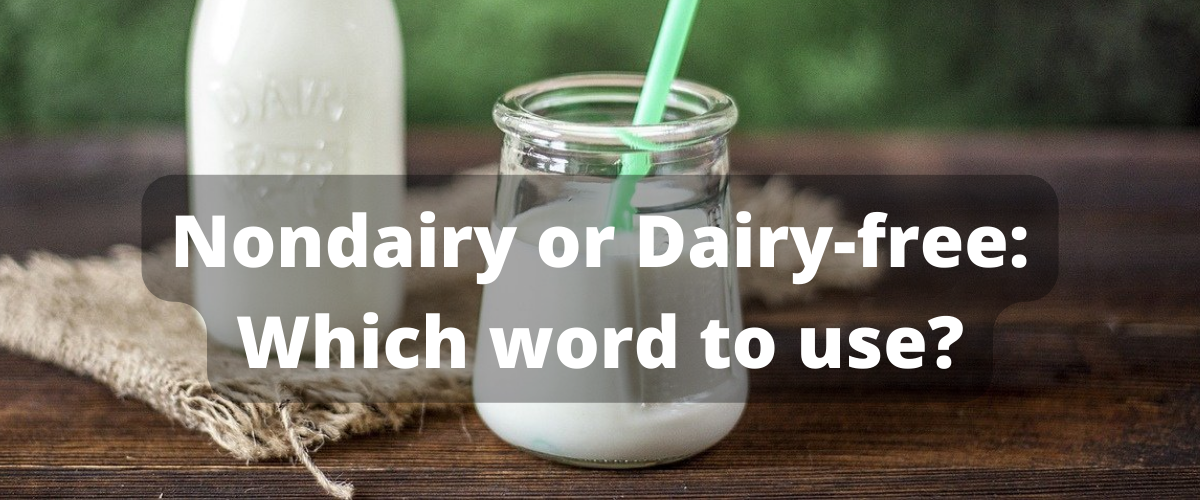Nondairy or Dairy-free?


“Nondairy” and “dairy-free” are often used interchangeably; however, there’s a crucial difference between these two terms, especially for individuals with milk allergies.
Nondairy: This is the only term regulated by the Food and Drug Administration (FDA) to be on product labels if the product does not contain “cow’s milk.” However, the regulation allows for the presence of milk protein such as casein, whey, or any other protein which derives from milk, to be listed with the parenthetical term “a milk derivative” in the ingredient list. These milk derivatives can still be a severe allergen for people with milk allergies. This term is often found on products like coffee creamers that are substitutes for dairy cream but still contain milk proteins.
In summary: “Dairy-free” means no dairy. “Nondairy” can contain milk derivatives.
On the other hand, the term “dairy-free” has no regulatory definition from the FDA. Therefore, without an established regulatory definition, there is really no assurance that the food is actually free of dairy. With that said, for consumers with a severe dairy allergy, it is better to always read the food ingredient list carefully, even if a product is labeled “nondairy” or “dairy-free,” to make sure what the ingredients really are.
Here is a list of common milk derivatives, which can be a concern for people with milk allergies or those that avoid dairy:
Milk Proteins
– Calcium caseinate
– Magnesium caseinate
– Potassium caseinate
– Rennet casein
– Sodium caseinate
– Whey protein
– Whey protein concentrate
– Whey protein isolate
– Hydrolyzed whey
– Demineralized whey
– Sweet dairy whey
Fats and Sugars
Processed Milk Products and Solids
These are whole or partial milk products that have been processed for use in other foods.
Other
Important Note: The list above is not exhaustive, and manufacturers may use other names. If you have a severe allergy, it is crucial to always read the full ingredient list on a product label and be aware that the products labeled as “nondairy” may still contain milk derivatives like casein.
| Cookie | Duration | Description |
|---|---|---|
| cookielawinfo-checkbox-analytics | 11 months | This cookie is set by GDPR Cookie Consent plugin. The cookie is used to store the user consent for the cookies in the category "Analytics". |
| cookielawinfo-checkbox-functional | 11 months | The cookie is set by GDPR cookie consent to record the user consent for the cookies in the category "Functional". |
| cookielawinfo-checkbox-necessary | 11 months | This cookie is set by GDPR Cookie Consent plugin. The cookies is used to store the user consent for the cookies in the category "Necessary". |
| cookielawinfo-checkbox-others | 11 months | This cookie is set by GDPR Cookie Consent plugin. The cookie is used to store the user consent for the cookies in the category "Other. |
| cookielawinfo-checkbox-performance | 11 months | This cookie is set by GDPR Cookie Consent plugin. The cookie is used to store the user consent for the cookies in the category "Performance". |
| viewed_cookie_policy | 11 months | The cookie is set by the GDPR Cookie Consent plugin and is used to store whether or not user has consented to the use of cookies. It does not store any personal data. |
